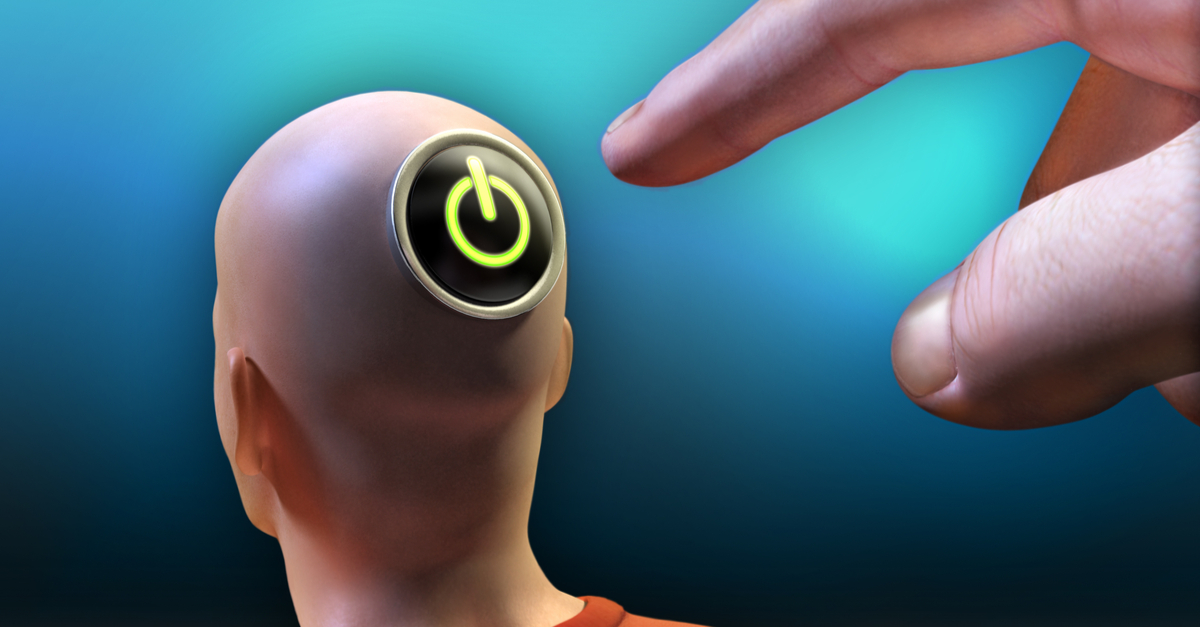 Robert Weiss PhD, LCSW
Robert Weiss PhD, LCSW
Once upon a time – and not that long ago – socially, legally, and psychologically “acceptable” sex occurred between a legally married man and woman, preferably in the missionary position and only for the purposes of procreation (and perhaps for the pleasure of the male). Everything else was taboo, maybe even pathologized and illegal. A prime example of this is homosexuality, which was both illegal and listed as a mental health disorder in our nation until the early 1970s, when the American Psychiatric Association finally “declassified” it, with legal jurisdictions slowly following suit.
Kink, fetishes, and paraphilic behaviors have been similarly disparaged over the years – socially, psychologically, and sometimes legally, causing many people with “nontraditional” sexual interests to feel shame, to suppress themselves sexually, and to struggle with anxiety, depression, and other forms of emotional and psychological discomfort.
At this point, you may be wondering how kinks and fetishes differ, and what the heck a paraphilia is. If you do an internet search on these terms, you’ll find a relatively wide variety of definitions for kink and fetish, and a clinical definition for paraphilia. I define these three concepts as follows:
- Kink: This is a broad term describing nontraditional sexual interests that one might use occasionally to add sexual spice.
- Fetish: A nontraditional sexual interest that is a key element of sexual arousal – a deep and abiding, maybe even primary element of desire.
- Paraphilia: A nontraditional sexual interest that is recurrent, intense, and sexually arousing that is also deeply distressing or psychologically disabling to the individual.
Kink and fetishes are not indicative of a psychological disorder, and they are not illegal for mutually consenting adults. Paraphilias, because they are deeply distressing and disabling to the individual, are listed as a psychological disorder, but that is less about the specific behavior and more about how the behavior (and yes, fantasizing is a behavior) impacts the individual’s life. Paraphilias may or may not be illegal, depending on the behavior and the jurisdiction. For example, sex with animals is illegal, while cross-dressing is not.
People have had kink and fetish arousal patterns since the dawn of time, but until recently they lived in shadows. Most people, even sex therapists, knew little about them and were afraid to discuss them. People who wanted to engage in these behaviors either hid their desire completely, never mentioned it because they thought they were the only one, or searched far and wide and risked social shame (or worse) to indulge.
Then we got the internet.
According to the Urban Dictionary, Internet Rule 34 states, “If it exists, there is porn of it. If there isn’t, there will be.” Nowhere is this more applicable than with kink and fetishes. Whatever you’re into, you can find of it online, and probably someone else who’s into it and willing to chat. There might even be an organization of some sort to help you find like-minded individuals. And if you’re perusing porn, you could inadvertently find a few new tricks to rev your engines.
As I have written elsewhere (for Psychology Today), pornography can reveal elements of a person’s arousal template that he or she was previously unaware of. This is because, in today’s world, there is not only an unlimited supply of porn but an endless variety. Because of this, countless users are (intentionally or unintentionally) exposed to and become aroused by behaviors that they didn’t know turned them on. Basically, porn reveals elements of their arousal template they were previously unaware of or simply repressed. And once these attractions are revealed, they don’t go away.
When the excitement and revelation of pornography are combined, an interest in kink and fetish behaviors can be revealed. For a lot of people, this is fantastic. These individuals improve the sex life they already had by adding a bit of kink, or they find the “missing” element of their sexual life and start to incorporate that turn-on into their behaviors. For others, however, these newly uncovered elements of arousal can be psychologically disturbing (paraphilic) or even illegal. Either way, sex or porn addiction may arise.
No, I am not suggesting that kink, fetishes, and paraphilias are elements of sex and porn addiction. In fact, sex and porn addiction are not, in any way, defined by who or what it is that turns a person on. Kink, fetishes, sexual orientation, and the like are not part of the equation when diagnosing compulsive sexual behavior. Having a kink or fetish does not make you a sex/porn addict any more than not having a kink or fetish makes you a sex/porn addict.
That said, discovering a kink or fetish through porn can be an extremely intense, highly arousing experience that leads some people toward compulsivity and addiction. In the same way a substance user might escalate, over time, from beer to prescription opiates to addictively injecting heroin, a porn user might escalate from relatively vanilla erotic imagery to hardcore porn to daily viewing of kink/fetish porn for hours on end.
This does not, however, mean that every person who reveals a new element of his or her arousal template through pornography will become addicted. In fact, most people will not, just as most people who experiment with alcohol do not become addicted. But for individuals who are vulnerable to addiction and other psychological disorders thanks to genetic influences, unresolved early-life trauma and neglect, and similar dysfunction, the intensity and excitement of kink/fetish porn can be a bit like crack cocaine – a powerful catalyst for escalation and addiction.
Can Therapy Help?
If you are unhappy about arousal elements revealed through your use of pornography – kink, fetish, or otherwise – you can certainly speak to a therapist about this. In fact, doing so is highly recommended. But if that therapist tries to tell you that you can put the genie back in the bottle, you need to look for another therapist. No amount of talk therapy, aversion therapy, prayer, or any other tactic will dislodge a deeply rooted arousal trigger. And all of those approaches will exacerbate the shame you already feel.
Rather than attempting to close the door on elements of arousal that you now know about thanks to pornography, a therapist’s job is to help you accept that newly revealed element, no matter how disturbing it feels to you, as a natural and healthy part of your sexual self. Then the therapist can help you decide whether you want to act on that element or push it aside so you can focus on sexuality that better fits your values, relationships, and life goals. It is not the job of any therapist to judge or attempt to change a client’s arousal template.
That said, if a client’s sexual attraction or behavior is illegal or harms (or could potentially harm) the client or others, deeper clinical intervention is needed. This work is best handled by a specialist – most often a clinician trained and certified in one or more of the following disciplines:
- Human Sexology
- Sexual and Behavioral Addictions
- Gender Identity/Sexual Orientation
The best referral sources for sexual issues of all types are listed below. Many of these organizations also provide trainings and certifications to therapists who wish to learn more.
- Sex and Relationship Healing: The Sex and Relationship Healing website provides a wide array of free resources for individuals struggling with sex and intimacy issues, their partners, and even therapists. In addition to blogs, podcasts, booklists, and other resources, the site hosts more than 20 free webinars and drop-in discussion groups each week.
- Seeking Integrity: Seeking Integrity offers residential treatment, weekend workshops, and online workgroups for sex addiction, porn addiction, paired substances/sex addiction.
- AASECT: The American Association of Sexuality Educators, Counselors, and Therapists. This organization provides referrals for counselors who can help with non-addiction, non-offending sexual issues, along with training and certification for treatment of non-addiction, non-offending sexual issues.
- ATSA: The Association for the Treatment of Sexual Abusers. ATSA promotes evidence-based practice, public policy, and community strategies that lead to the effective assessment, treatment, and management of individuals who have sexually abused/offended or are at risk to do so. ATSA provides referrals to qualified therapists.
- IITAP: The International Institute for Trauma and Addiction Professionals. IITAP trains and certifies therapists to deal with the full gamut of sexual issues, including sexual addiction. They are a great referral source.
- Safer Society Foundation: The Safer Society Foundation is dedicated to ending sexual abuse and offending through effective prevention and best-practice treatment for sexual abusers/offenders and their victims. The foundation provides a great deal of useful information on its website.
- SASH: The Society for the Advancement of Sexual Health. SASH is dedicated to sexual health and overcoming problem sexual behaviors, including sexual addiction. SASH offers both training and referrals.
- SSSS: The Society for the Scientific Study of Sexuality. SSSS is dedicated to the study of human sexuality. This is a great organization to contact if you are ego-dystonic (unhappy) about non-pathological sex-related issues (such as sexual orientation, non-harming fetishes, and the like).
- WPATH: World Professional Association for Transgender Health. WPATH is a professional organization dedicated to transgender health. The organization promotes evidenced-based care, education, research, advocacy, public policy, and respect.
* * * * * * * * * *
If you or someone you care about is struggling with sex, porn, or substance/sex addiction, help is available. Seeking Integrity offers inpatient treatment for sex, porn, and substance/sex addicts, as well as low-cost online workgroups. At the same time, SexandRelationshipHealing.com offers a variety of free webinars and drop-in discussion groups, podcasts, and more.
